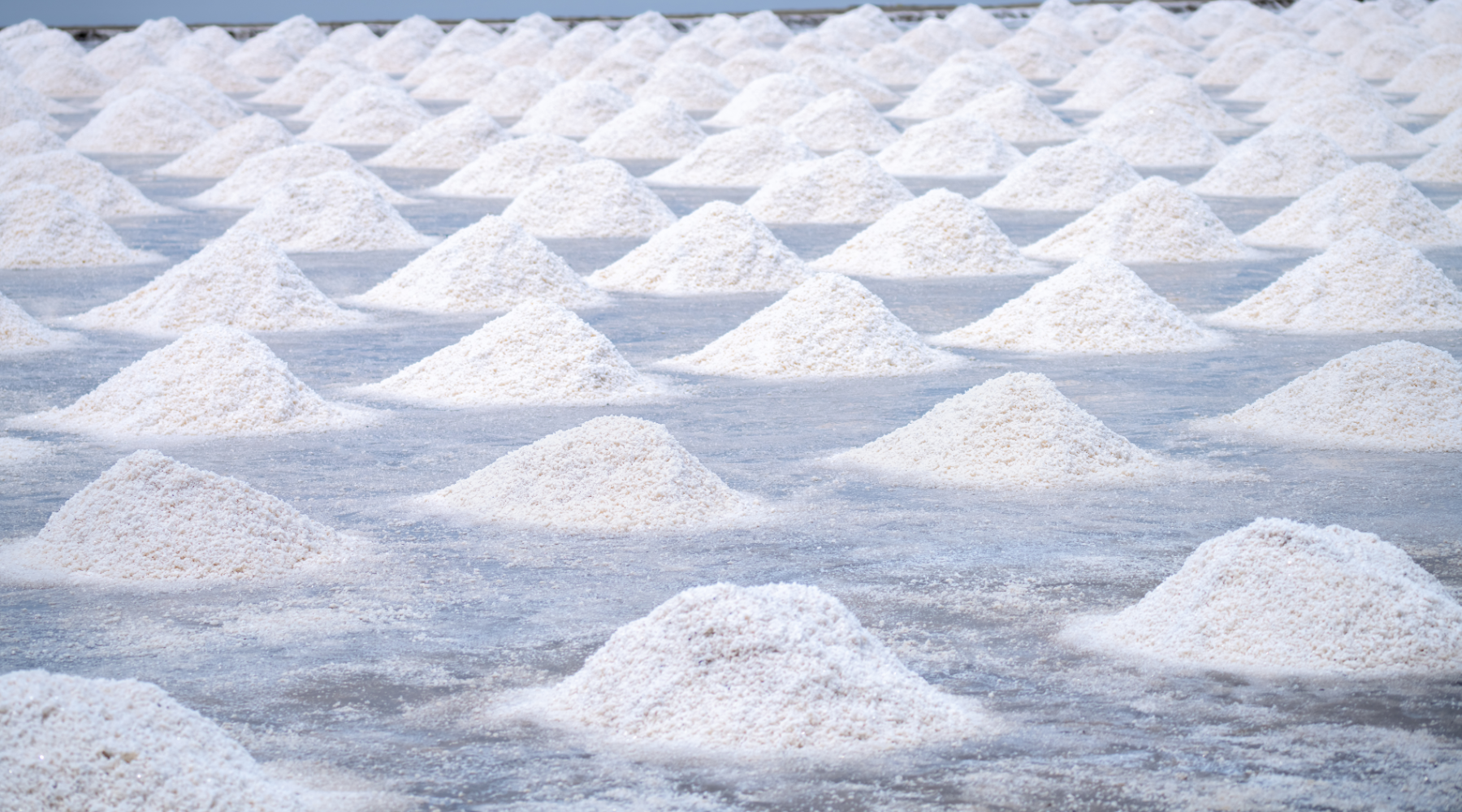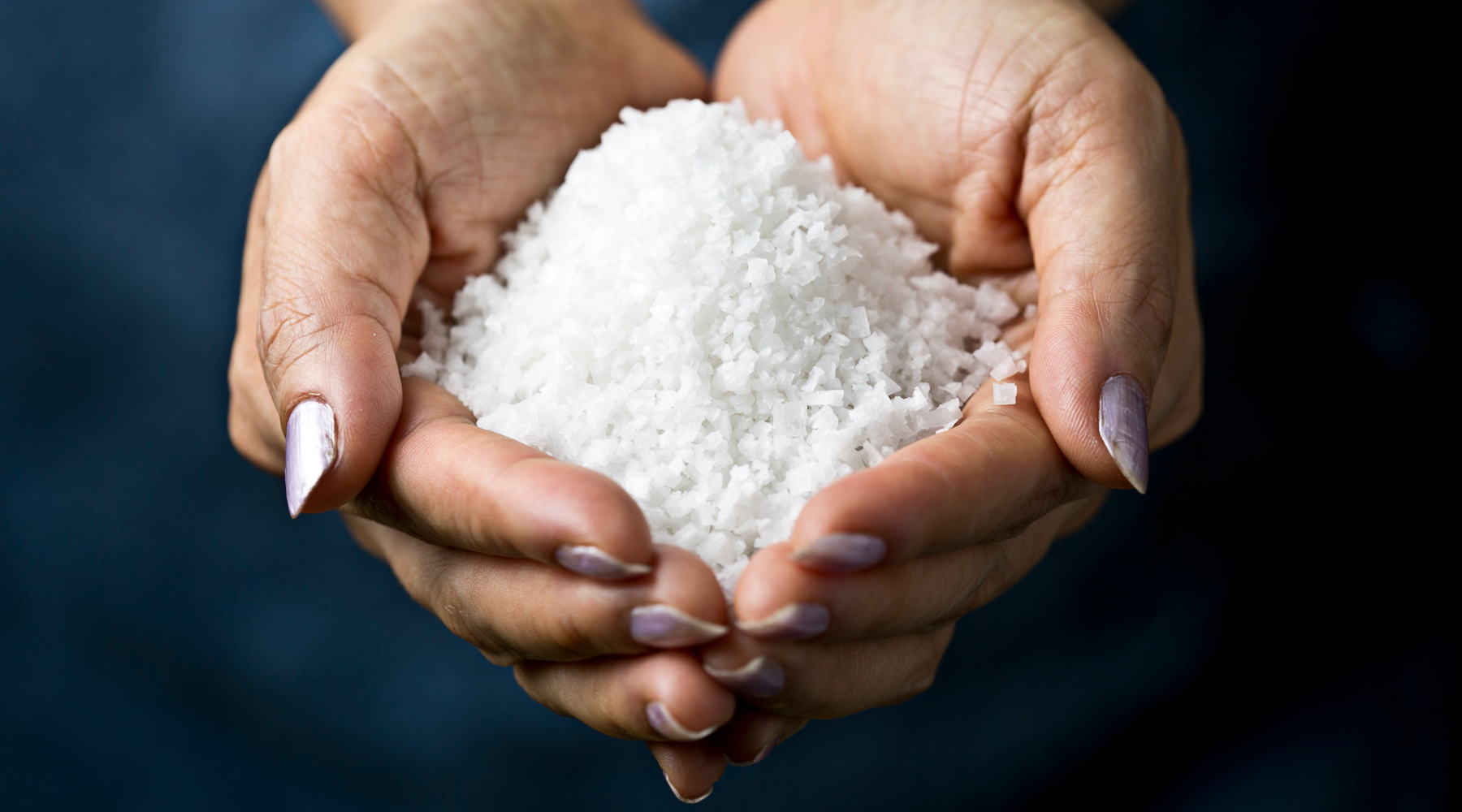Why is the Ocean Salty?
Can you throw seawater over your shoulder if you want to ward off evil water spirits? Well, on average, seawater is about 3.5% salinity, so if you're feeling superstitious, then go for it! Have you ever wondered why the ocean is salty while lakes and rivers generally aren't? Let's find out.

Why is the Ocean Salty?
The ocean is salty mainly because of the erosion of rocks by rainwater, and underwater volcanic activity. Salt domes also play a small part in adding salt to the sea.
1. Erosion of Rocks
The freshwater in streams, rivers, and glacial melts often contains sediment and minerals that have eroded from rocks. The concentration of these minerals is too low to affect the freshwater, but once it feeds out into the ocean, the sediment it carries along, both dissolved and solid, helps contribute to the ocean's salinity.
This process has been taking place for millions of years, gradually increasing the ocean's salinity to the levels that exist today. According to NOAA, it's estimated that around 4 billion tons of salt is carried from rivers to the ocean every year.
2. Underwater Volcanoes
Underwater volcanoes and hydrothermal vents also contribute to the ocean's salinity. These vents spew out mineral-rich water, including various salts.
3. Salt Domes
Salt domes also play a small role in contributing to the ocean's salinity. These geographical formations take shape when evaporating seawater leaves behind thick layers of salt. Over time, these layers get buried under sediments and can be pushed upwards by the immense pressure of overlying layers, forming a dome-like structure. Some of these domes can reach the surface and erode, releasing salt back into the ocean.

Has the Ocean Always Been So Salty?
The ocean hasn't always been as salty as it is now. It's believed that in the Earth's early history, the oceans were probably only slightly salty. However, over millions of years, as rain eroded rocks and rivers carried the dissolved salts to the oceans, their salinity increased. This process was further influenced by the Earth's evolving climate and geological activity.
Is The Ocean Getting Saltier?
It's believed that the ocean is no longer getting saltier, with salt levels remaining fairly constant.
Water enters and leaves our ocean at a balanced rate, being deposited by rivers, rain and glacial melt while evaporating or freezing at a more or less constant rate. This keeps the water level relatively similar but doesn't allow the ions and minerals in the salty saltwater to be removed. When water is evaporated, it's just the water leaving the ocean, not the salt. A large amount of salt is deposited on the ocean floor, balancing out the amount of new salt introduced from rivers etc.
Why Isn't All of the Ocean Equally Salty?
The salinity of different parts of the ocean can vary. Factors such as evaporation, precipitation, river inflow, and ocean currents can dramatically affect local salinity levels. Of all 5 ocean basins, the Atlantic Ocean is the saltiest.
The ocean's salinity is a product of a long and ongoing journey involving the Earth's geology, climate, and hydrological cycle. It's a delicate balance that has a profound impact on our planet's ecology. Celebrate the wonders of the ocean with our Seas Collection, where you'll find deep-sea-dwelling creatures, shorebirds, and more.
















Leave a comment (all fields required)